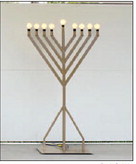Member Column-The Wound Still Burns
by Man Chul Cho, M.D.
LW contributor
Thirty-two years ago, in 1992, the infamous April 29 civil uprising happened. (Unrest began in South Central Los Angeles on April 29, after a jury acquitted four officers of the Los Angeles Police Department charged with using excessive force in the arrest and beating of Rodney King.)
The Korean community calls it the Los Angeles Riot, in which 58 people died, 2,383 people were wounded, and 13,779 people were arrested.
In the trial of Rodney King, there was no Black person on the jury.
The court found three of the four police officers not guilty and one officer was retried. The news of the verdict was immediately announced on TV and radio.
Tom Bradley, who was the mayor of Los Angeles at the time, called it an unbelievable verdict (I heard that Mr. Bradley, on his deathbed, regretted that Los Angeles could not protect Koreatown).
Everyone protested, calling it a civil unrest, but somehow, Los Angeles, especially Koreatown, was left to burn for several days. The burning of the buildings and rioting continued while the police did not engage to protect the town and its citizens.
The police (Daryl Gates was police chief at the time) were protecting other areas in Los Angeles County, such as Hollywood, but Koreatown was an exception to their protection.
The rioters mostly consisted of the Black community and alongside them were hispanic gangsters. Finally, President George W. Bush called in the military to end the riot.
And somehow, the media focused on Black and Korean conflicts such as the Latasha Harlins incident and some conflict between two communities. They redirected the anger from the Black and white conflict to Black and Korean conflicts. More than 2,000 Korean-run businesses were burned down. Many people were physically and psychologically damaged, and about 2,000 people needed immediate counseling for acute trauma.
I was the medical director of Asian Pacific Counseling Center in Los Angeles County, Mental Health Department, at that time and had a first-hand view of the trauma caused by that day.
About 500 people had severe symptoms, which required them to be seen by psychiatrists for more intense psychotherapy and medication therapy.
Koreans didn’t understand why innocent people were abused and why these people’s properties were destroyed.
Many Koreans thought the verdict of the Rodney King trial was unjust. They had sympathy for the Black community.
Some of those patients still need psychiatric counseling and are still suffering. The victims have accumulated anger. In Korean, it’s called hwa-byung, the “anger sickness.” Hwa-byung is recognized as “suppressed anger” in the American Psychiatric Association’s diagnostic manual. Some patients wound up broke or homeless.
They got divorced, the family scattered, they disappeared. Some of them got addicted to drugs.
These psychological sufferings caused them to become vulnerable to physical illness. Their children also suffered. Some of them still remember that day. I’ve been telling the victims and their family that someday, someone will apologize, as they were innocent victims.
I have been trying to get an official apology from the government, but nothing has been done. I hope I can go to the court to testify for my clients on how they have suffered. Some doctors became too old to testify, and many victims passed away. I provided counseling to thousands, encountering symptoms of post-traumatic stress disorder (PTSD) and suppressed anger, with some patients experiencing paranoia, delusions and depression.
The lack of accountability and an apology hindered the recovery process, leaving many feeling abandoned and seeking recognition for their pain and losses.
Thirty-two years later, the impact of the riots still reverberates within the community, though it seems forgotten by many.
Anniversary commemorations in Koreatown highlight the lasting scars.
I, carrying a fading pile of patient records, remain committed to bearing witness to their stories, hoping for acknowledgment and closure.
As the community remembers, my plea for recognition echoes, a reminder of the unresolved trauma and the enduring need for healing and reconciliation.




